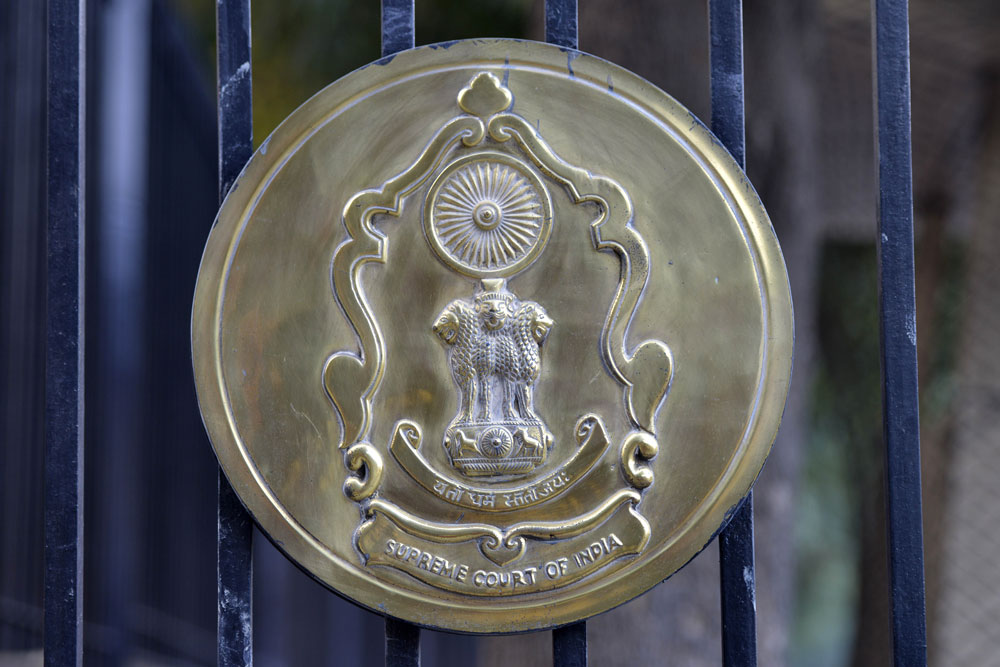The Supreme Court on Wednesday said an individual’s liberty “cannot be sacrificed at the altar of conjectures” and asked the Maharashtra government to produce its “best document to justify” the arrests of five Left-leaning activists on August 28.
“You must understand that the liberty of an individual cannot be sacrificed at the altar of conjectures,” Justice D.Y. Chandrachud, sitting on a bench with Chief Justice Dipak Misra and Justice A.M. Khanwilkar, told additional solicitor-general Tushar Mehta.
He added at another point: “Our institutions should be robust enough to accommodate dissent. We will look at all these attempts with a hawk’s eyes…. We may not like it but we must also accept there could be dissent.”
The court was hearing a public interest petition moved by historian Romila Thapar and others challenging the arrests of Varavara Rao, Sudha Bharadwaj, Arun Ferreira, Vernon Gonzalves and Gautam Navlakha for alleged Maoist links.
When Mehta insisted the Maharashtra government possessed material to prove the activists’ Maoist links and involvement in the January 1 Bhima-Koregaon caste violence, Justice Misra said: “Show us your one best document first.”
Mehta replied that the documents submitted to the apex court in a sealed cover and the case diary were “self-explanatory”.
When he referred to certain seized documents that allegedly proved the activists’ adherence to the Maoist ideology, Justice Chandrachud curtly said: “Don’t produce seminar-related documents. One may not agree with them (on ideology), but it doesn’t mean they are harmful.”
He added: “You have to make a clear-cut distinction between opposition to government and attempts to overthrow government by rising in arms.”
He went on: “Those at the helm of institutions may not like everything said about them but these cannot be grounds to stop them. There has to be something different to constitute subversion of law and order as far as elected government is concerned.”
Mehta replied: “Dissent is fine but it is also important who is saying it. If the leader of a banned outfit says it, this will have a different connotation.”
He argued that the arrests had nothing to do with dissent or writings by the activists but with “serious offences”.
“There is material recovered from their laptops, computers, hard disks, etc. We want your Lordships to go through the materials, which will shock the court’s conscience. Don’t make up your mind without going through the materials in full,” he said.
Mehta questioned the maintainability of the petition, saying the petitioners had no locus standi because a criminal case was between the accused and the state, and because they were not the ones aggrieved.
“Everything is recorded in the case diary. How can they (the petitioners) say we are framing someone? We found concrete materials required to justify the arrest,” he said.
Justice Chandrachud said: “We won’t go by one or two documents. Don’t raise your opposition about this court entertaining the petition.”
Senior counsel Abhishek Singhvi, appearing for Thapar, requested the court to form a special investigation team or monitor the ongoing probe.
Singhvi cited the police’s failure to produce letters that they claimed indicated an assassination bid on the Prime Minister and had allegedly been exchanged between the activists and a Maoist, “Comrade Prakash”.
“These letters are yet to be forensically verified. They do not find a mention in the chargesheet or in any transit remand application, and have not been placed on record in any court of law,” Singhvi said.
Former Union law minister Ashwani Kumar, appearing for some of the arrested activists, said none of the arrested five had been at the site of the Bhima-Koregaon violence or the meeting that preceded it, and none were named in the FIR.
He alleged a violation of his clients’ fundamental rights of equality, free speech, and life and liberty.
All five have been under house arrest — a relief granted by the apex court — since the day after the swoop.











